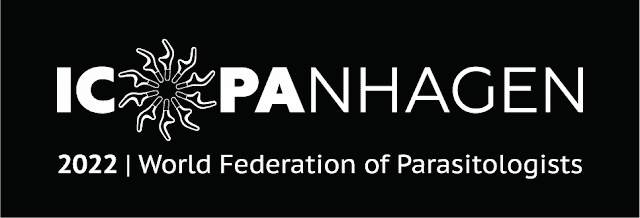Goodness - time flies! We are busy prepping for the ICOPA2022 - please
remember early bird registration deadline is 1 June, 2022! Go here for more information.
Meanwhile, I'm thrilled to be able to announce that The European Cooperation in Science and Technology (COST) has decided to support our project "Blastocystis under One Health", led by Dr Anastasios Tsaousis (Tasos)! There will be economic support to cover four years of networking and teaching activities across Europe - everything with the aim to strengthen research into Blastocystis and its role in health and disease. Here is a summary of the project:
Blastocystis colonizes at least one billion people making it the most prevalent intestinal microbial eukaryote.Emerging data indicates higher prevalence in animals. A high proportion of carriers are asymptomatic. Despite numerous studies, the pathogenicity of Blastocystis remains controversial. Currently, at least 26 genetic subtypes (STs) exist. Of these, ST1-ST9 and ST12 have been found in humans, while the rest have been
isolated only from non-human hosts. Information on prevalence, geographic distribution and host specificity of STs is incomplete. Significant gaps also exist on the environmental presence of Blastocystis. Collectively, this paucity of data blurs the Blastocystis landscape considerably. The specific objectives of this framework are to: (1) Support advancement of Blastocystis research by bringing together professionals from various disciplines and countries; (2) Foster information sharing on current methodologies, especially in the areas of subtyping, host-Blastocystis-microbiome interactions and Blastocystis-omics; (3) Promote capacity building via a transdisciplinary network of international collaboration; (4) Open avenues of communication with veterinarians, physicians and the general public. By the end of this initiative, participants will be able to: (i) Apply state-of-the-art tools for molecular identification of Blastocystis; (ii) Harmonise methodologies for subtyping
Blastocystis and identifying its role within the gut; (iii) View Blastocystis under One Health approach; (iv) Generate novel hypotheses to test role of Blastocystis in the gut ecosystem, health and disease.
Scientists from a great number of countries will participate, including the COST countries Belgium, Croatia, Cyprus, Czech Republic, Denmark, France, Greece, Hungary, Ireland, Italy, Latvia, Lithuania, North Macedonia, Norway, Poland, Romania, Serbia, Slovenia, Spain, Turkey, and United Kingdom. International partner countries include Canada, Colombia, Japan, Peru, Saudi Arabia, Singapore, Thailand, and the United States.
Our project received a score of 46/50.
Apart from Tasos, who should receive the highest possible accolade for this achievement, a number of people made significant contributions to the proposal, including Eleni Gentekaki, Mark van der Giezen, Graham Clark, and myself.
This is a massive advancement in Blastocystis research, and will take the research into and knowledge about this peculiar organism to a completely different level. I expect a lot from the next few years' work with Blastocystis, and personally, I'm very interested in exploring how we can "use" Blastocystis as an indicator organism and - potentially - a manipulator of gut bacterial communities!
Stay tuned for more information! And I'll see some of you at ICOPA2022 in August!




